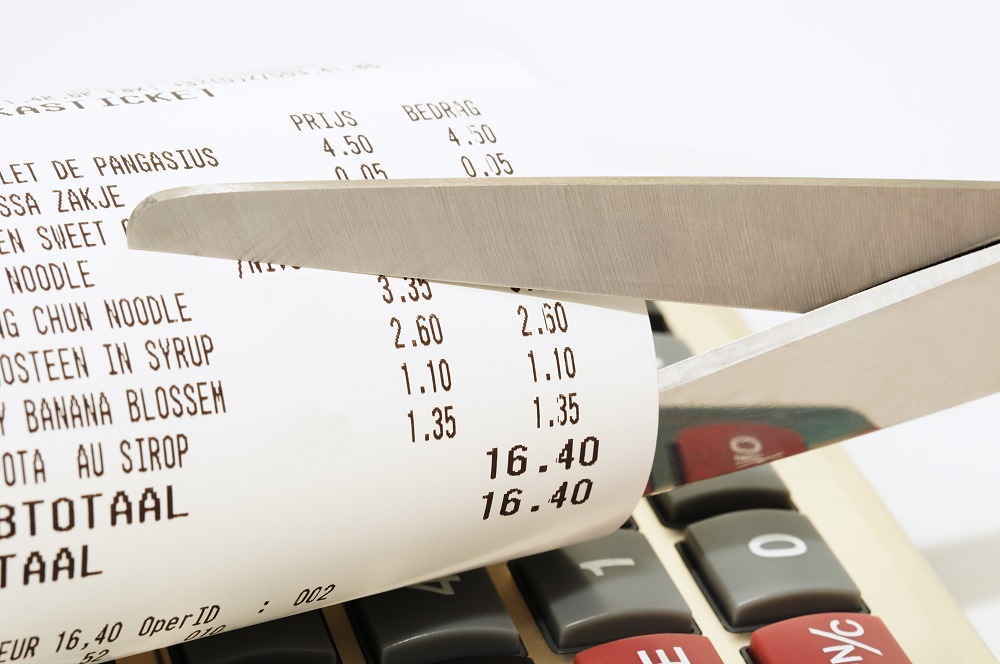Groceries are one of a household’s biggest expenses, which is why it’s important to check food prices. There are many ways to lower your grocery bill while eating healthy. Here are 20:
# 1
Before going to the grocery store, check what foods you already have at home so you don’t buy duplicates.
# 2
To avoid food waste and unecessary spending, plan your next meals around what you have left in your fridge or pantry.
Do you know about the Glouton site? It suggests recipes based on the ingredients in your fridge or foods that are on special in grocery store flyers. It’s a good way to save even more!
# 3
Check the flyers and compare prices. Plan 2 or 3 recipes around foods that are on special.
# 4
Draw up a grocery list and stick to it!
Use a menu planner to help!
# 5
Do your grocery shopping after eating! Shopping while hungry makes us buy foods that are quick to make but are more expensive and less nutritious.
# 6
Don’t let yourself be tempted by false promotions that encourage you to buy more than you need (and maybe cause food to go to waste).
# 7
Resist impulse buys (like grabbing a chocolate bar at the cash register).
Avoid buying food in convenience stores or eating in restaurants, where food is most expensive!
# 8
Visit the liquidation (quick-sale) section, which has very ripe fruits and vegetables. If they don’t have any mold, these foods are just as good for your health while costing much less. However, be sure to use them soon to keep them from spoiling.
# 9
Buy “ugly” fruits and vegetables. They’re just as good and are often less expensive than “perfect” ones!

# 10
Buy food in bulk. You won’t be paying for packaging and can take only the amount you need. A plus for you and the planet!
# 11
Buy foods that are in their most natural form. Avoid processed foods and ready-to-eat foods (already cooked and packaged).
# 12
In the middle aisles, concentrate on staple foods like legumes, rice, pasta, spices, etc.
# 13
Buy whole fruits and vegetables rather than pre-cut ones. The more the food has been prepared, the more it will cost. Cut them yourself once you get home and save!
# 14
The same goes for the meat section. Buy a whole chicken rather than deboned breasts. Prepare and marinate the pieces of meat yourself.
Visit small neighbourhood grocery stores, which often have good prices on fruits and vegetables!
# 15
Eat what’s in season. You’ll get strawberries, corn or pears at the lowest price when they’re in season. Find out when foods are ready in Quebec with Fraîcheur Québec’s visual calendar.
# 16
Be daring and try vegetable proteins! Replace some of the meat in your recipes with legumes, which are nourishing, practical and tasty and are only a fraction of the price! Check our recipe ideas for inspiration.
# 17
Compare the prices of different sizes of the same product to find out which is the better deal. To do this, check how much the item costs per 100 g or 100 ml. It will be written on the label or the shelf. Bring a calculator along to help you.
# 18
Check whether the product is also available in the store brand. It will be less expensive and just as nourishing.
# 19
At the cash register, check that the prices being entered are the same as those indicated on the shelf. Don’t hesitate to check your bill and let the cashier know about any mistakes.
Most big grocery store chains have discount stores. Your grocery bill will be much lower at Maxi than at Provigo, or at Super C than at Metro.
# 20
Some stores, like Maxi and Wal-Mart, match their competitors’ prices if you show them the lower price in a flyer when it comes time to pay. It’s a great way to take advantage of all the discounts in one place!
Once back home, be sure to properly store the foods so that they keep longer. Reduce waste by planning your menu for the week and freezing any extra. Meal prep is a great way to organize your meals.
Remember, cooking with basic ingredients is the key to saving money and feeding the whole family healthy meals!
Writing : Fondation Olo
Scientific review : Caroline Pomier-L., nutritionist, Dt.P., M.Sc.
